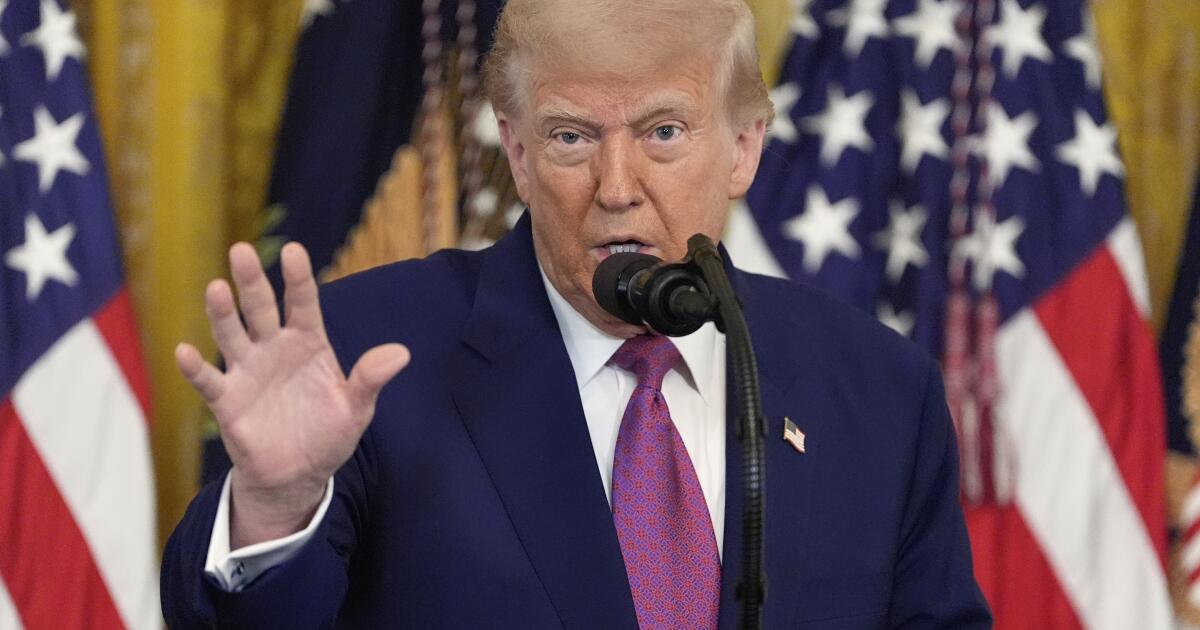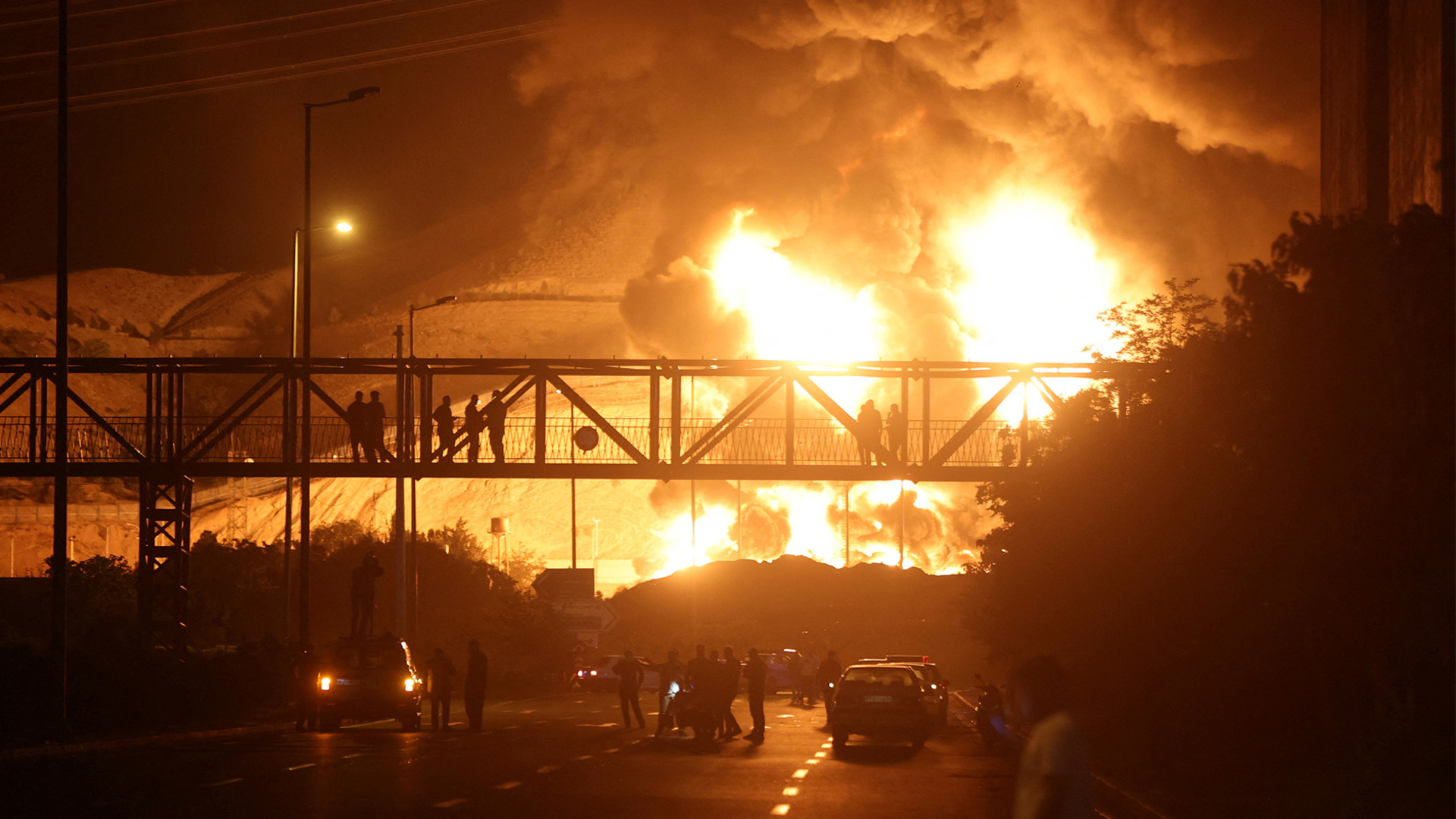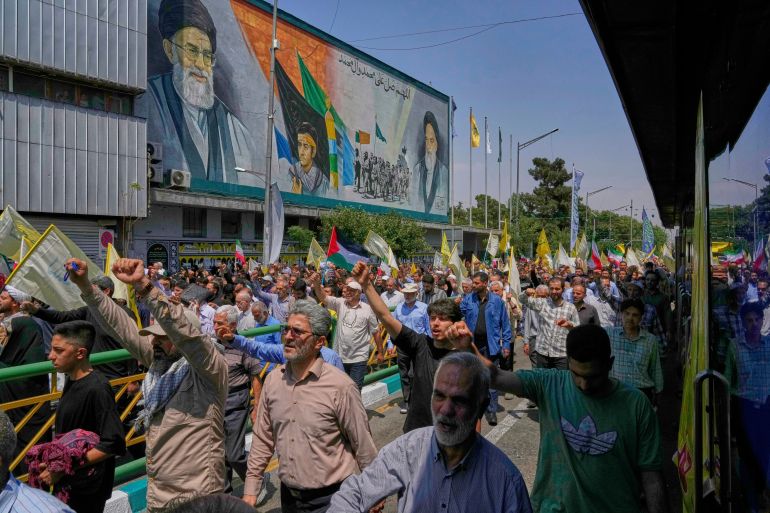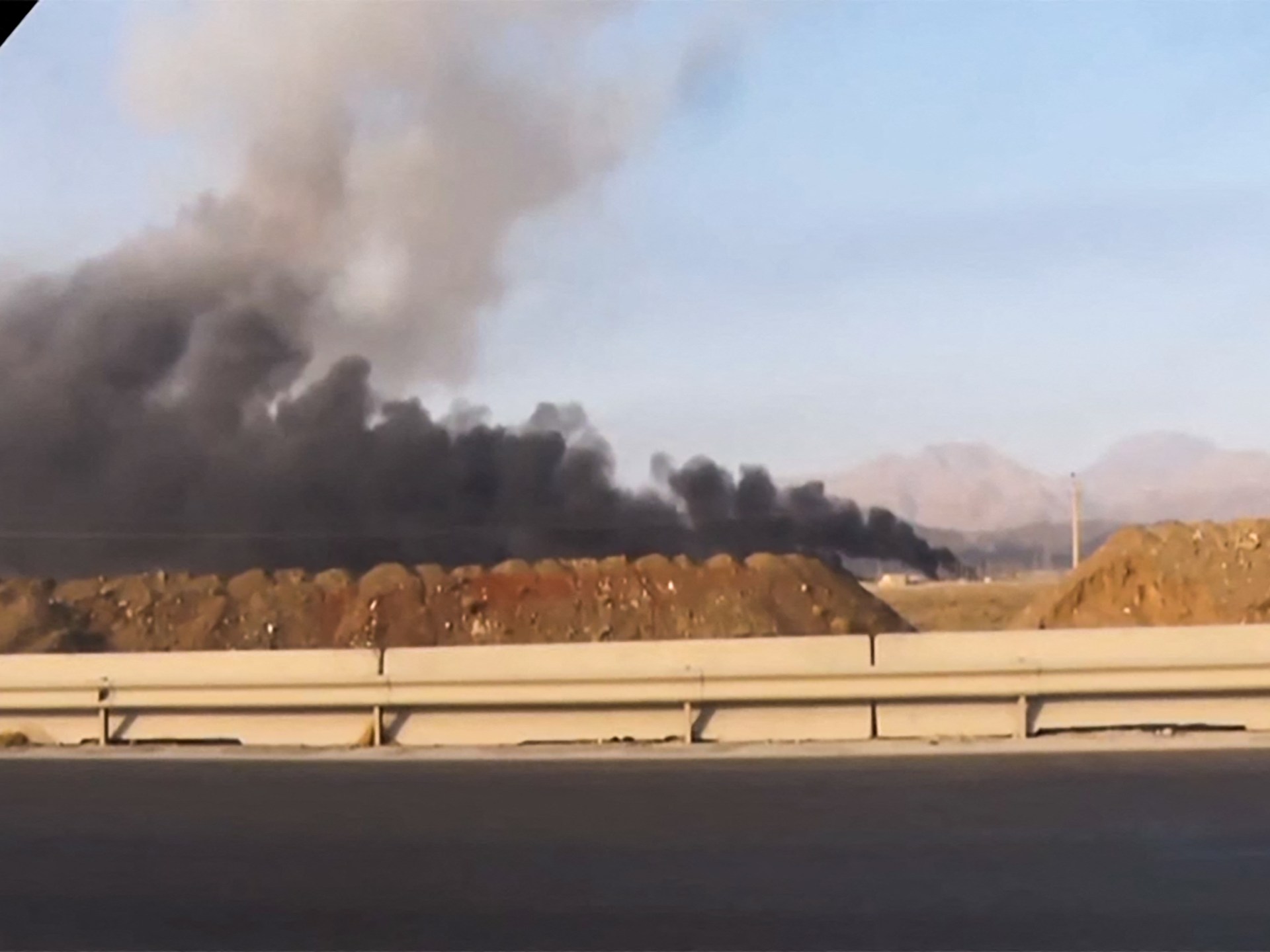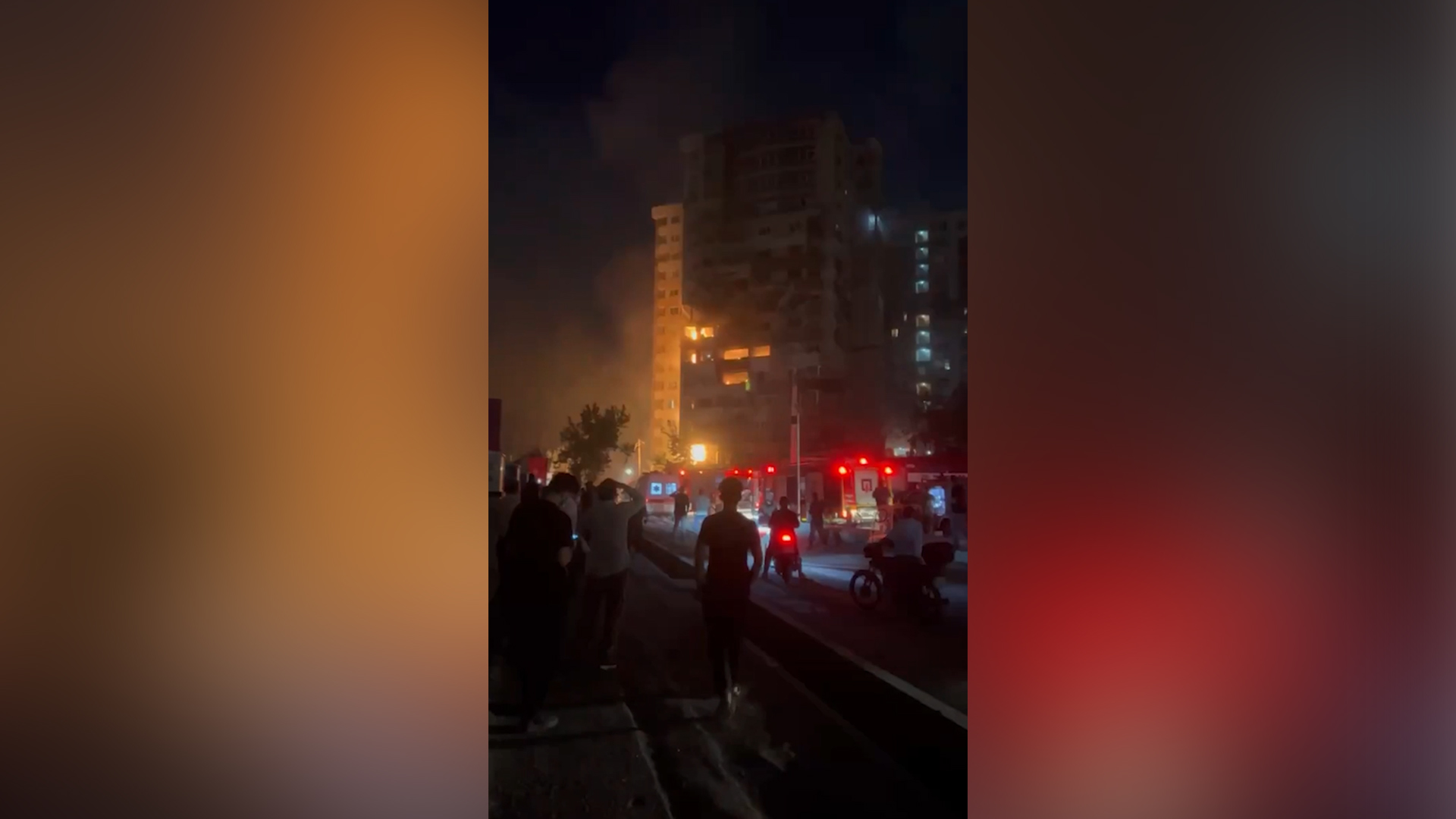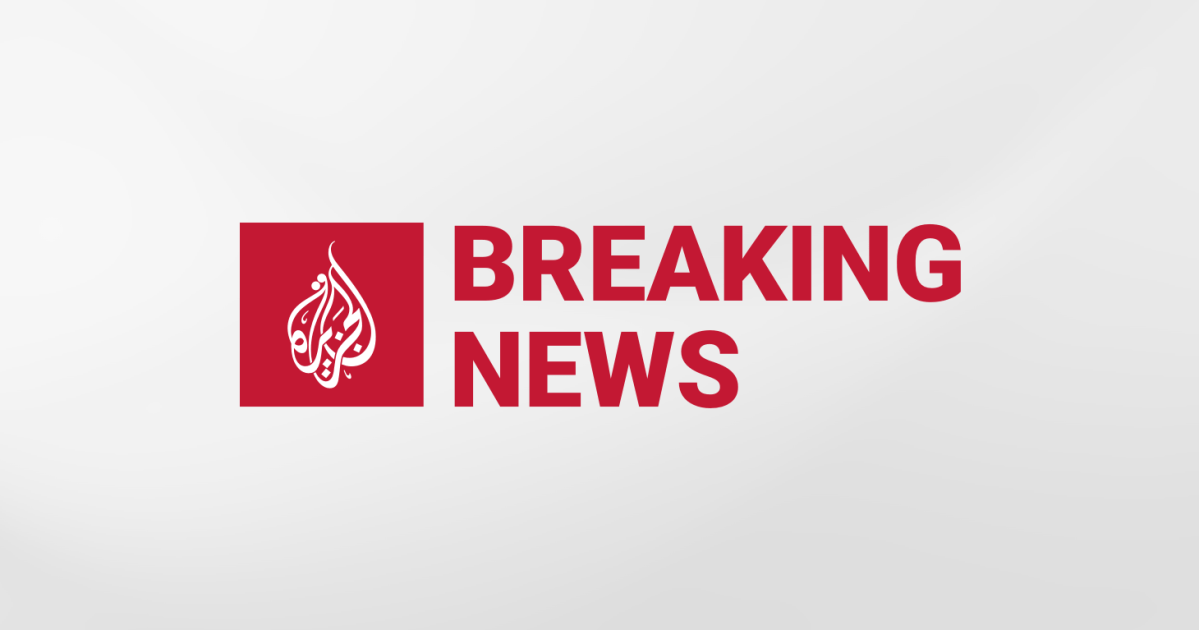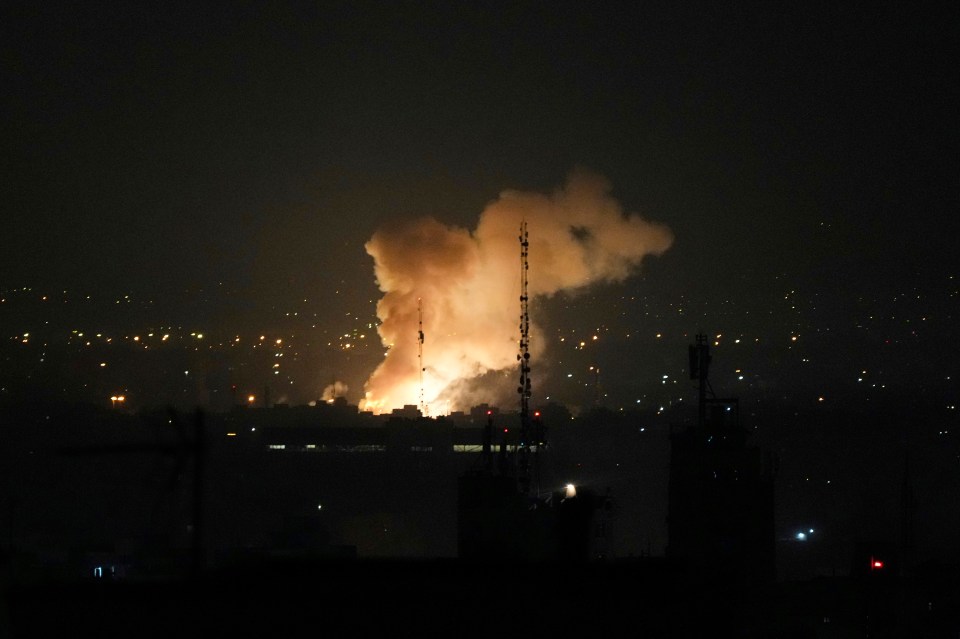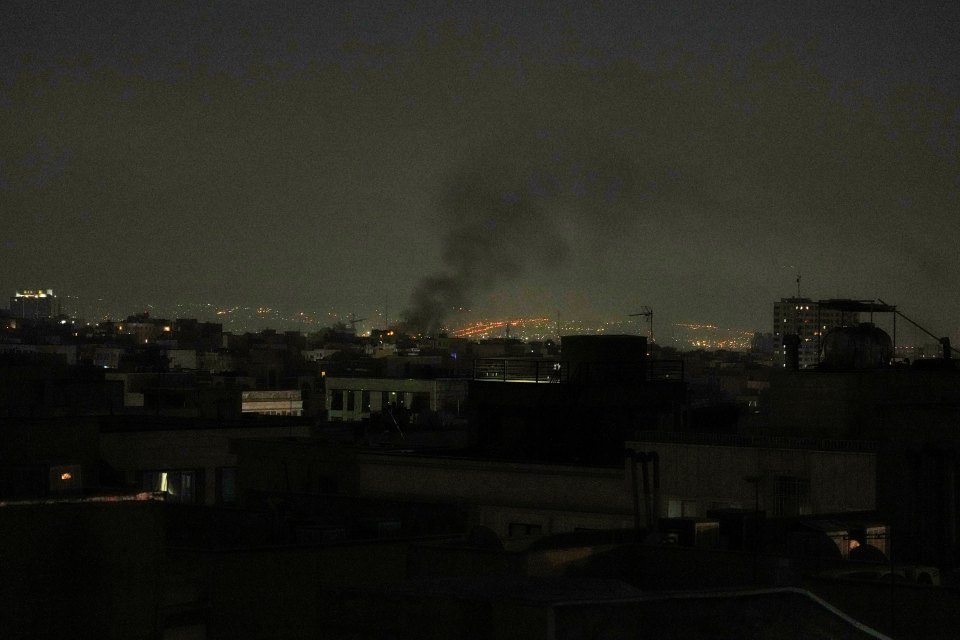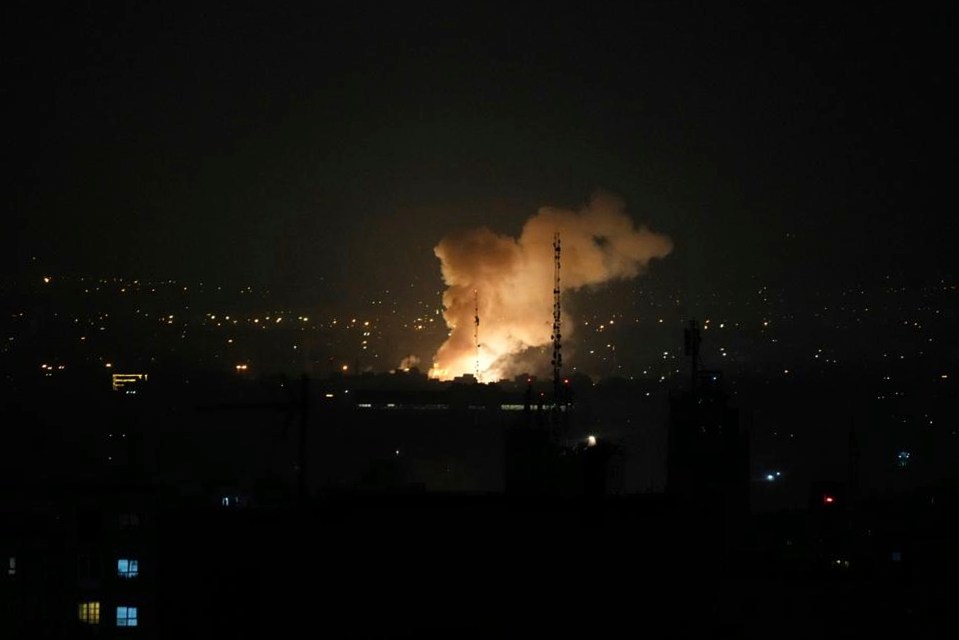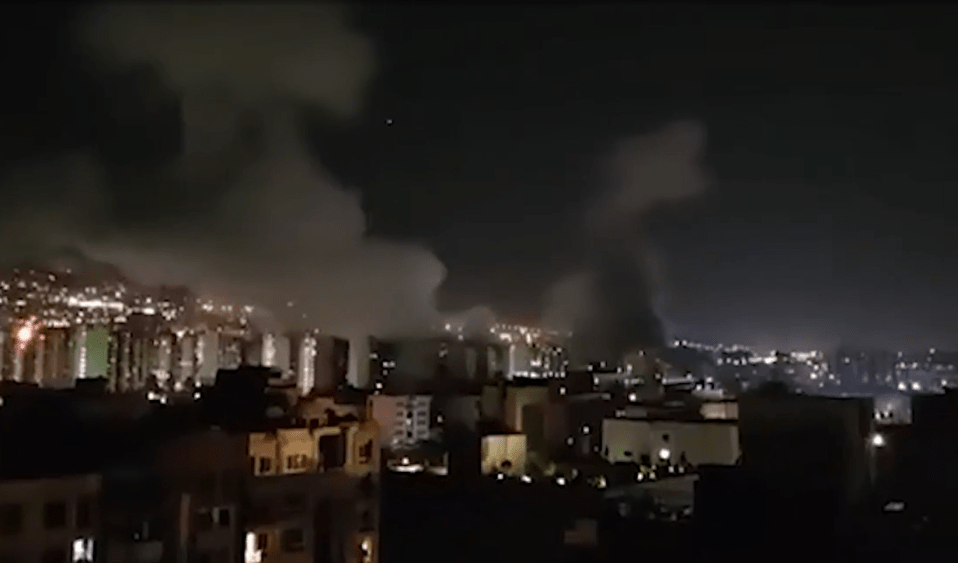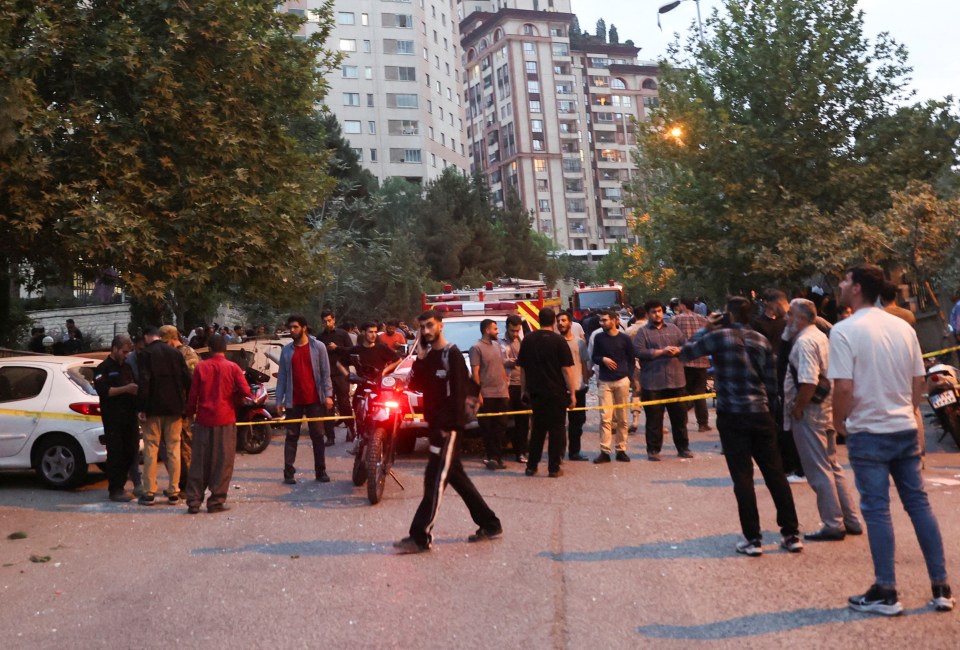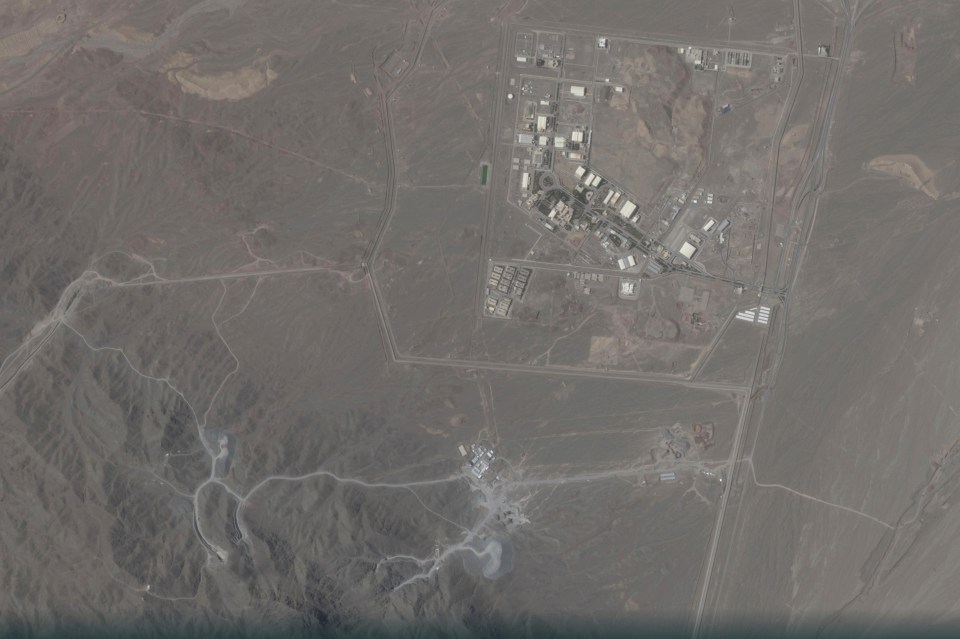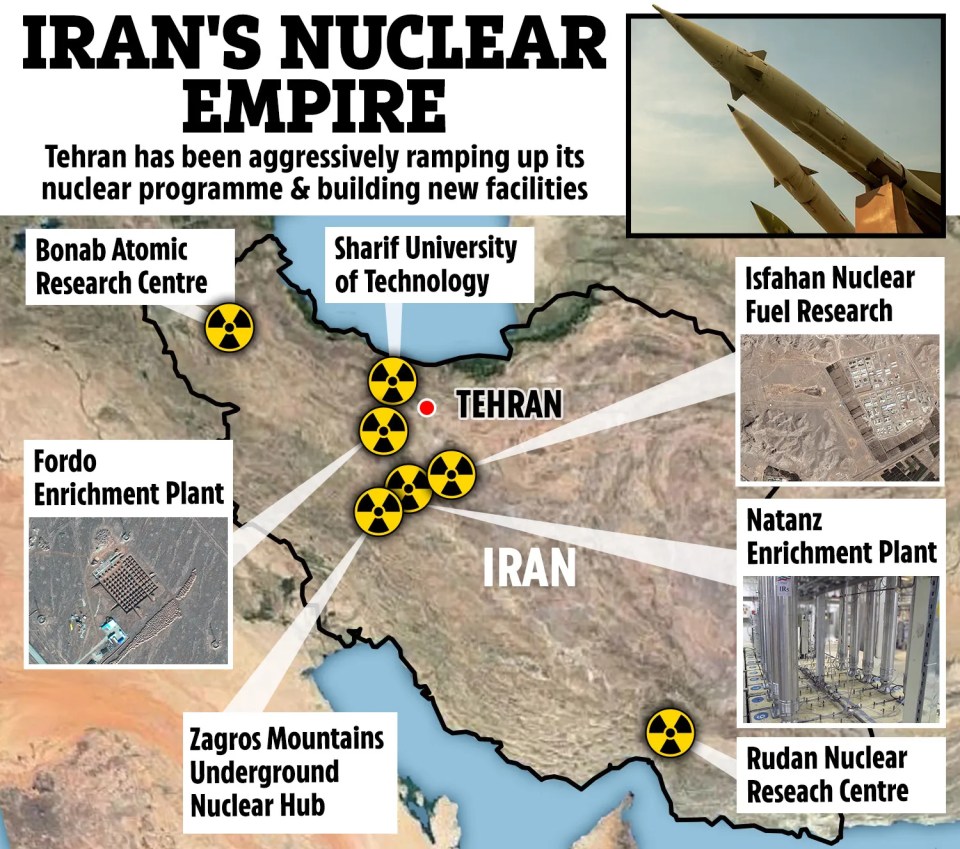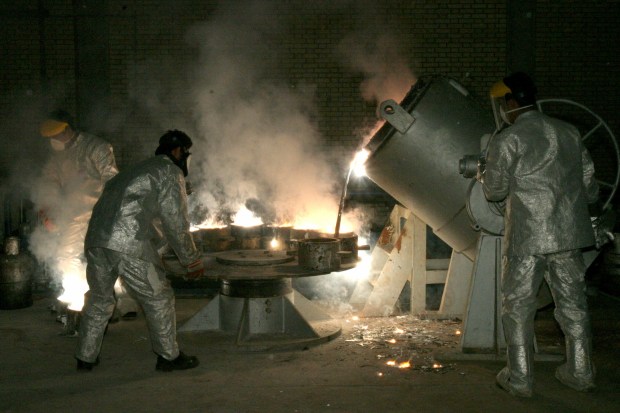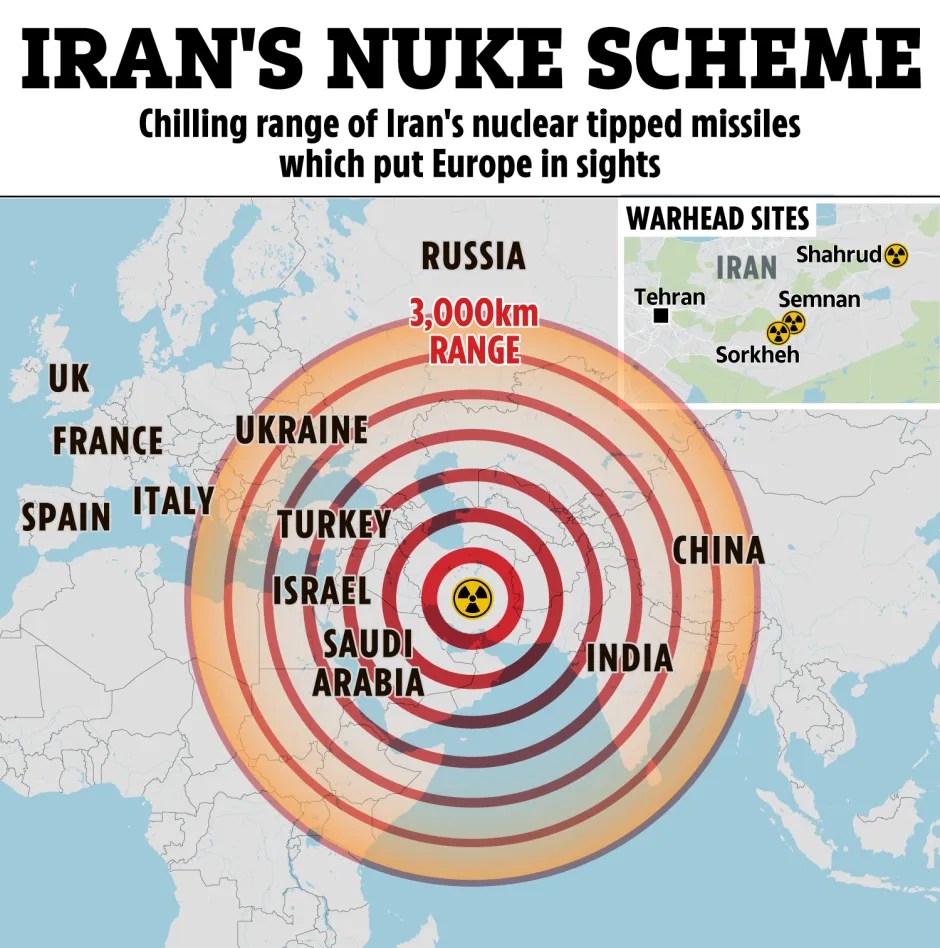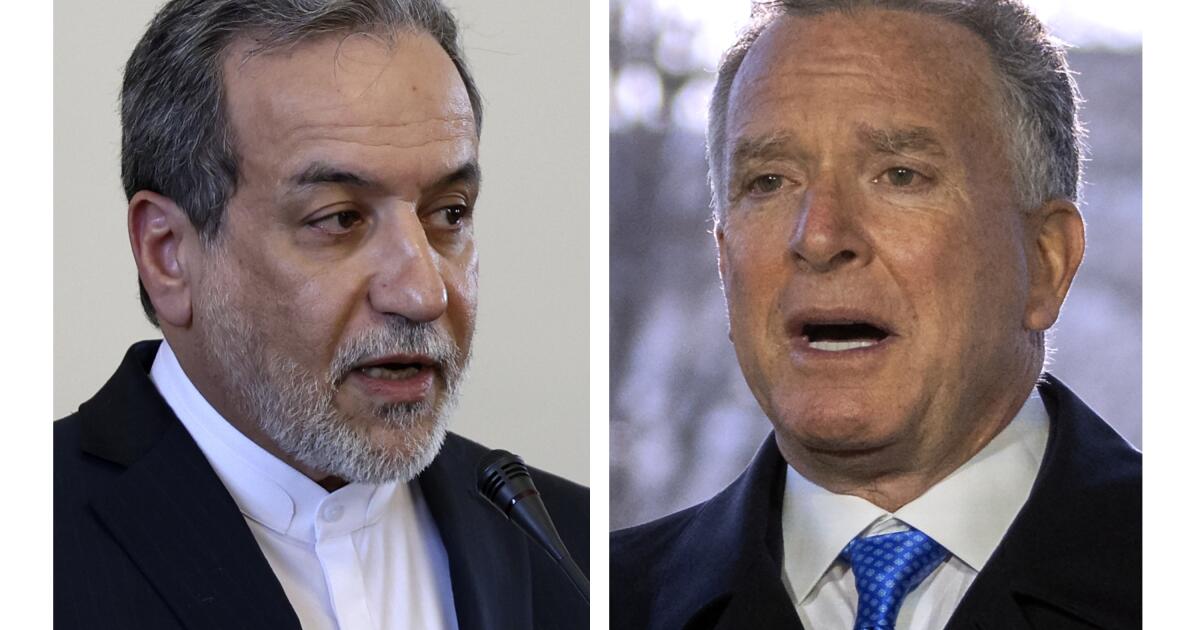Trump believes Israel-Iran may come to deal ‘soon’ and warns Tehran not to retaliate against U.S.
WASHINGTON — President Trump on Sunday issued a stark warning to Iran against retaliating on U.S. targets in the Middle East while also predicting Israel and Iran would “soon” make a deal to end their escalating conflict.
Trump in an early morning social media post said the United States “had nothing to do with the attack on Iran” as Israel and Iran traded missile attacks for the third straight day. Iran, however, has said that it would hold the U.S. — which has provided Israel with much of its deep arsenal of weaponry — responsible for its backing of Israel’s military actions.
Israel targeted Iran’s Defense Ministry headquarters in Tehran and sites it alleged were associated with Iran’s nuclear program, while Iranian missiles evaded Israeli air defenses and slammed into buildings deep inside Israel.
“If we are attacked in any way, shape or form by Iran, the full strength and might of the U.S. Armed Forces will come down on you at levels never seen before,” Trump said.
Hours later, Trump took to social media again, saying, “Iran and Israel should make a deal, and will make a deal.”
The U.S. president claimed he has a track record for de-escalating conflicts, and that he would get Israel and Iran to cease hostilities, “just like I got India and Pakistan to make” after the two countries’ recent cross-border confrontation. The U.S. was among a multinational diplomatic effort that defused that crisis.
India struck targets inside Pakistan after militants in April massacred 26 tourists in Indian-controlled Kashmir. Pakistan has denied any links to the attackers. Following India’s strikes in Pakistan, the two sides exchanged heavy fire along their de facto borders, followed by missile and drone strikes into each other’s territories, mainly targeting military installations and airbases.
It was the most serious confrontation in decades between the countries. Trump on Sunday repeated his claim, disputed by India, that the two sides agreed to a ceasefire after he had offered to help both nations with trade if they agreed to de-escalate.
Trump also pointed to efforts by his administration during his first term to mediate disputes between Serbia and Kosovo and Egypt and Ethiopia.
“Likewise, we will have PEACE, soon, between Israel and Iran!” Trump said. “Many calls and meetings now taking place. I do a lot, and never get credit for anything, but that’s OK, the PEOPLE understand. MAKE THE MIDDLE EAST GREAT AGAIN!”
The growing conflict between Israel and Iran is testing Trump, who ran on a promise to quickly end the wars in the Gaza Strip and Ukraine and build a foreign policy that more broadly favors steering clear of foreign conflicts.
Trump has struggled to find an endgame to the wars in Ukraine and Gaza, which show no signs of abating.
And after criticizing President Biden during last year’s presidential campaign for persuading Israel against carrying out strikes on Iranian nuclear sites, Trump himself made the case to the Israelis to give diplomacy a chance.
His administration’s push on Tehran to give up its nuclear program came after the U.S. and other world powers in 2015 reached a long-term, comprehensive nuclear agreement that limited Tehran’s enrichment of uranium in exchange for the lifting of economic sanctions.
Trump spoke with Russian President Vladimir Putin on Saturday about the growing Israel-Iran conflict. And Trump is set to travel later Sunday to Canada for the Group of 7 summit, where the Mideast crisis will loom large.
Some influential backers of Trump are him urging to keep the U.S. out of Israel’s escalating conflict with Iran.
Rep. Marjorie Taylor Greene (R-Ga.), Turning Point USA founder Charlie Kirk, former Fox News host Tucker Carlson are among the prominent hard-right backers of Trump who have argued that voters supported his election because he would not involve the nation in foreign conflicts.
Kirk said last week that before Israel launched the strikes on Iran he was concerned the situation could lead to “a massive schism in MAGA and potentially disrupt our momentum and our insanely successful presidency.”
Kentucky Republican Sen. Rand Paul praised Trump, saying he showed restraint and that he hoped the president’s “instincts will prevail.”
“So, I think it’s going to be very hard to come out of this and have a negotiated settlement,” Paul said in an appearance on NBC’s “Meet the Press.” ”I see more war and more carnage. And it’s not the U.S.’s job to be involved in this war.”
Madhani writes for the Associated Press. AP writer Gary Fields contributed to this report.
